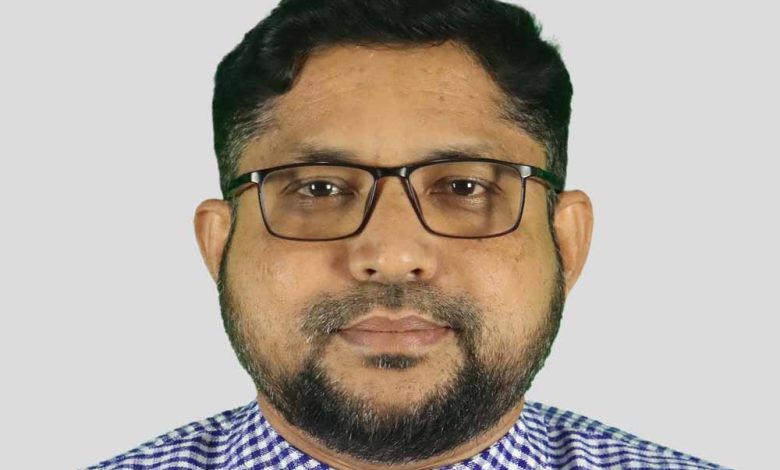Should create a data bank in the microfinance sector on a priority basis, says Sangram ED


Holiday Post Report: The success of the microfinance sector is now in question. Whether microfinance can keep the economy moving has been tested in many ways. These days, any work that needs a big investment often can’t get the right amount of loan support based on member needs. As a result, people are taking loans from multiple organizations. The root of this problem is a lack of funding within the institutions themselves. “This issue can be solved easily if the government and financial institutions step up to fix the funding crisis of microfinance institutions,”
Holiday Post: What are the most pressing challenges that microfinance institutions (MFIs) in Bangladesh currently face in achieving their goals?
Chowdhury Munir Hossain: The major challenges as bellows: first thinks, the lack of necessary funds of MFIs. second, the Borrowers taking loans from multiple institutions. third, shortage of skilled human resources. Fourth, there is no legal framework to recover from defaulters and five, due to the social status talented people are less interested in joining the type of the sector itself. All the same, digitizing the collection and distribution system is the biggest challenge right now.
Holiday Post: How do you perceive the impact of current government policies and regulations on the operations and sustainability of MFIs?
Chowdhury Munir Hossain: The government formed Microcredit Regulatory Authority MRA to ensure MFIs operate under proper rules and regulations. If there’s happen any problem, there’s a space to raise this problem with MRA. More over MRA is consistently working to make microfinance activities more sustainable and institutions more accountable.
Holiday Post: What specific policy adjustments or new initiatives do you believe could be most effective in supporting the growth and effectiveness of the microfinance sector?
Chowdhury Munir Hossain: MFIs take from financial institutions high rate of Interest on loans. That’s one reason for defaults are rising. In such a scenario, low-interest loans should be made available to MFIs. There should also be proper legal support to recover defaults. And all services offered by MFIs should come under one umbrella.
Holiday Post: Given the global economic climate and Bangladesh’s aspirations for development, how can the microfinance sector contribute most effectively to achieving the SDGs by 2041 and to broader economic progress?
Chowdhury Munir Hossain: To keep up the economy moving and growing, we can’t just focus on large industries. We have to work at the individual level too. Like nature and environment friendly small, mid-level entrepreneurship development. MFIs are doing exactly that. Through support in agriculture and small and medium industries, MFIs are quietly helping meet the Sustainable Development Goals.
Holiday Post: What innovations or adaptations are necessary for MFIs to remain relevant and effective in a rapidly changing economic and social landscape? Can you give specific examples?
Chowdhury Munir Hossain: Technology use in this sector is moving very slowly. MFIs need to upgrade their own systems, and at the same time, the government should provide proper tech and data support.
Right now, there’s no strong organization protecting the interests of MFIs. That’s something we need. Also, instead of having hundreds of small MFIs, it would be more effective to merge them into fewer, stronger institutions.
Holiday Post: How are you incorporating sustainability and responsible lending practices into your organization’s core mission, and how do you measure the impact of these efforts?
Chowdhury Munir Hossain: We strictly follow MRA’s guidelines for sustainable and responsible lending. Our organization maintains integrity, anti-money laundering standards, gender policies, Safeguarding and so on.
Once a loan is given out, we make sure it’s used properly by visiting. Gradually our monitoring system has improved. We’ve hired experienced staff and provided training. These efforts are all part of our push for sustainable lending.
Holiday Post: Looking ahead, what are the most important long-term strategies and priorities for ensuring the sustainability and continued success of the microfinance sector in Bangladesh?
Chowdhury Munir Hossain: As you know due to global warming and environment pollution our planet has been affected different types of natural disaster and climate change affected our world. Now a days Cyclone, draught, river erosion, sea level rising, hit and cold wave affected frequent. I think there should be a dedicated disaster fund for MFI Set up either by the government or by institutions. Since MFIs invest all their money, they usually don’t have emergency funds.
We need all microfinance facilities under one umbrella, multiple funding channels, legal tools to recover unpaid loans, credit check systems like in banks, easier mortgage processing through medium entrepreneurs, and a central data bank for MFI workers. The government should also extend support to workers in this sector.
Holiday Post: Based on your experience and expertise, what advice would you offer to other leaders in the microfinance sector to help them navigate current challenges and achieve their missions?
Chowdhury Munir Hossain: There should be a uniform salary structure for all MFI staff. This will allow weaker institutions to pay according to their capacity and help stop the constant staff turnover.
There should pensions for retiring employees and form a strong forum that protects the interests of MFIs. Loans should be based on the entrepreneur’s need based not just handed out to anyone. Moreover we must use legal tools to collect unpaid loans, make small enterprises sustainable, invest in sector-specific areas, shift everything to tech-based operations, and tackle digitalization challenges.




